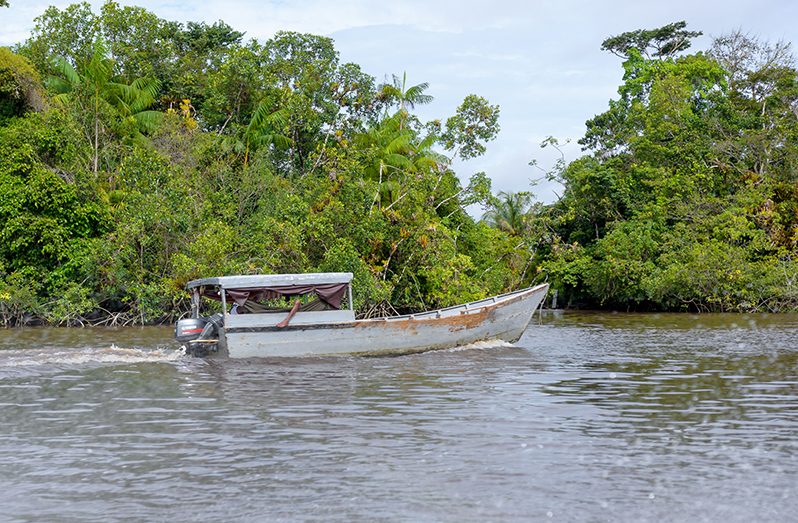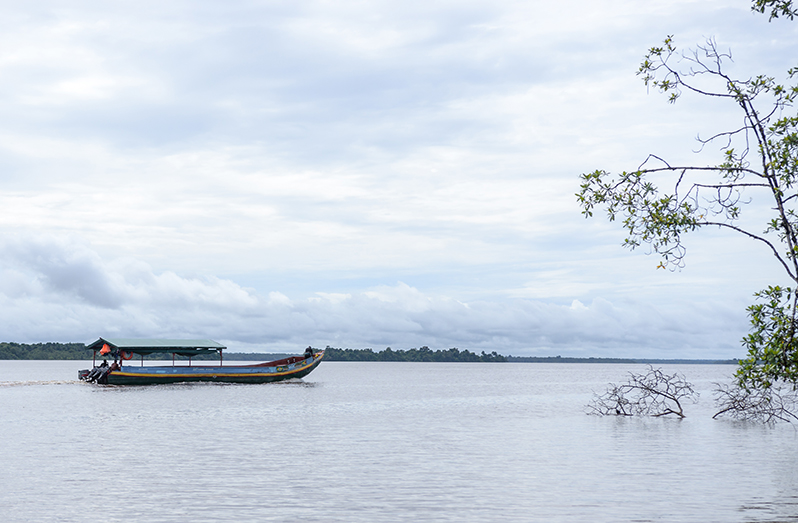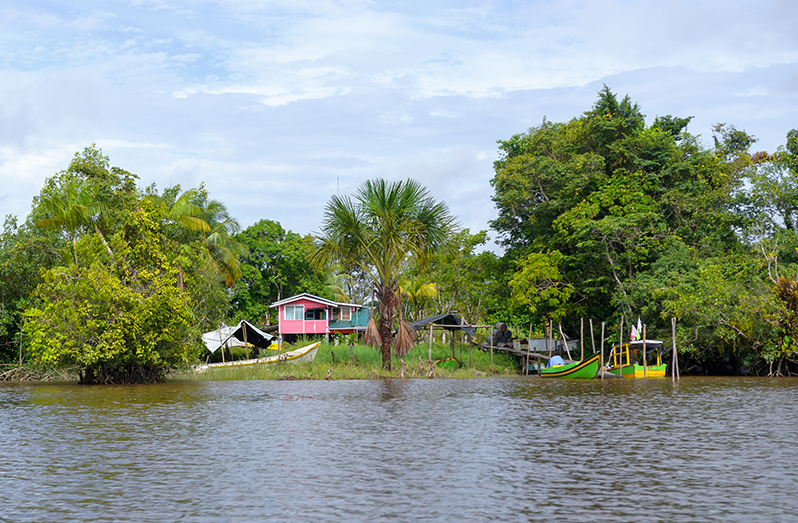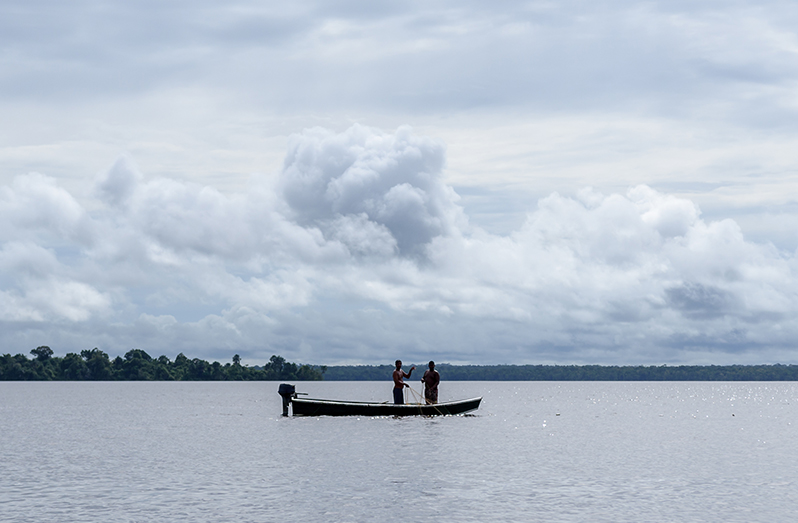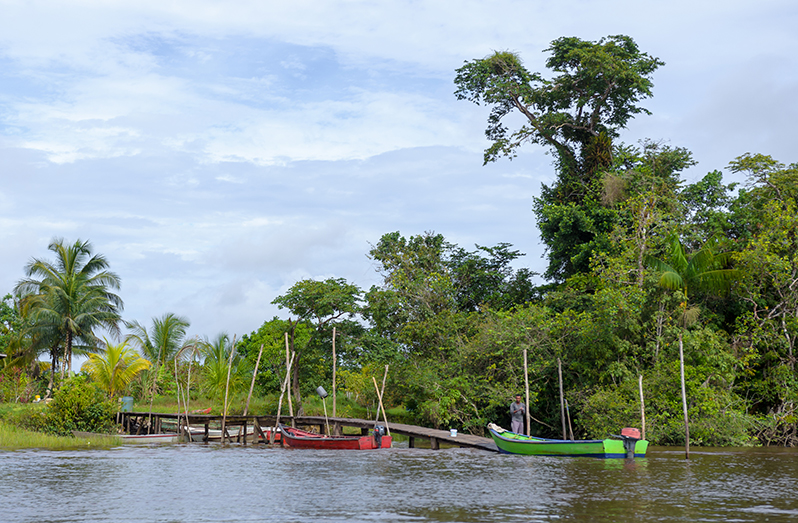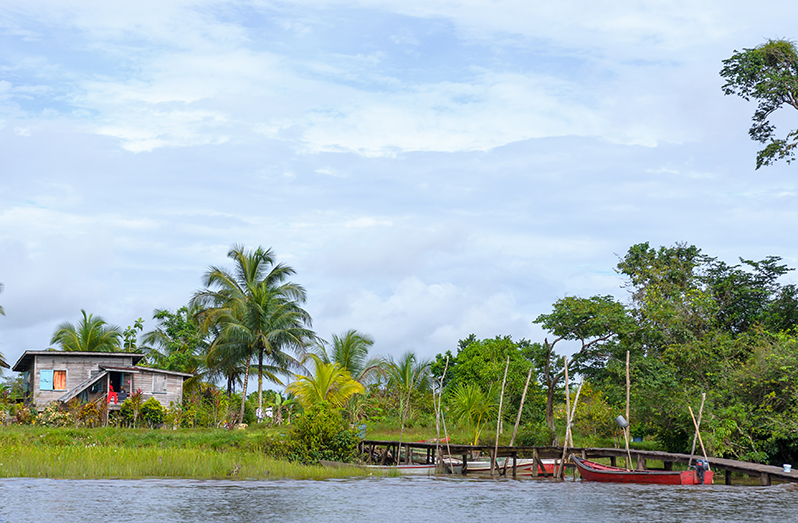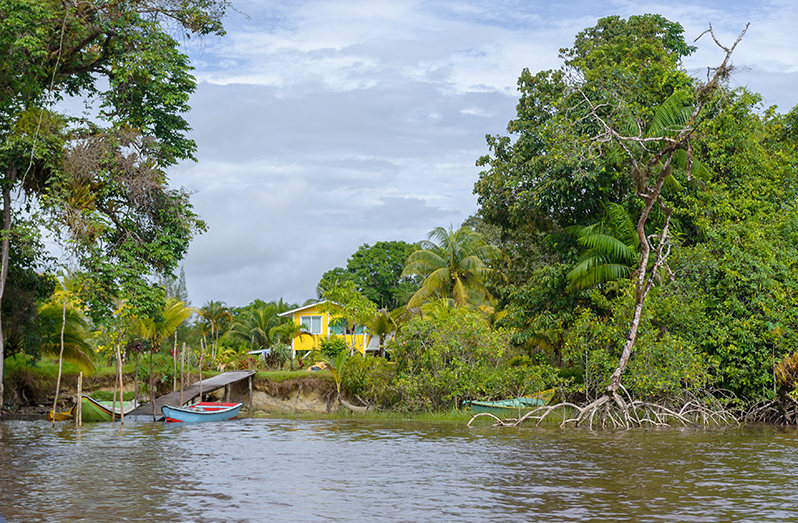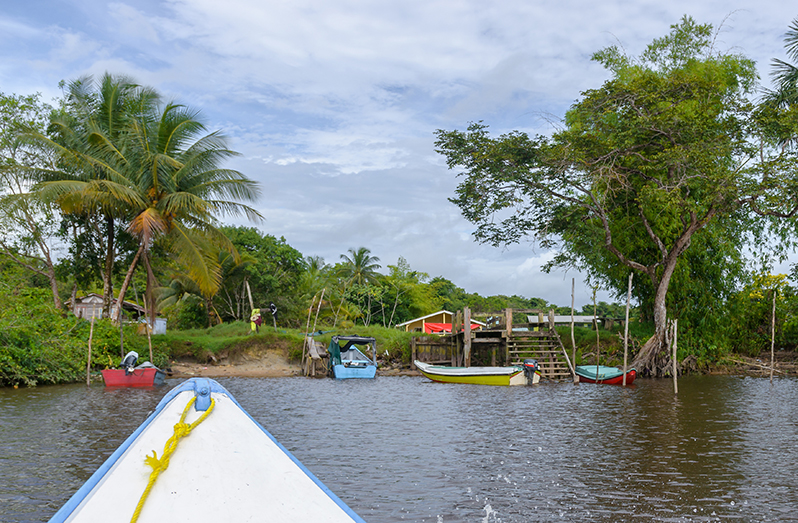An ideal place to live off the land and river
THE Pepperpot Magazine journeyed over land and water to visit the riverine community of Beri-Bissabali, Essequibo River, Region Three (West Demerara-Essequibo Islands) to highlight the way of life of the locals.
This far-flung village is located on the mainland between Aliki and Lanaballi and is seven miles from Saxacalli via boat, on the opposite side of the river.
Berri-Bessibali is on the west bank of the Essequibo River. The main income sources of the people are farming, poultry rearing and fishing.
The way of life of the residents is very simple. Almost everyone in the village is self-employed, but there is no day off and their daily lives entail hard work from dusk to dawn.
The villagers are heavily hit by the high tide and heavy rainfall, causing their farms to be inundated by flood waters resulting in the loss of crops.
There is no electricity in Berri-Bessibali, but the people utilise solar power and generators. Their only form of communication is via cell phone, but, recently, a private internet company launched its service in the riverine community.
There is also no potable water, but the natives use rain water for consumption and water from the river for chores.
The village is home to ginger, ground provisions, coconuts, sweet fig banana, watermelon and citrus.
It is a quiet village that is beautifully set by the Essequibo River, and it is the ideal place to watch the sunrise and sunset and also to enjoy the calm of the place.
The only mode of transportation is by boat, and almost all the residents have their own boats to commute and transport their produce to Hubu Koker. At this central point, wholesale buyers visit to buy from farmers for resale.
The people of Berri-Bessibali are very friendly and accommodating, so you will not leave without something to eat or drink.
They are neighbourly and look out for each other and live in unity. It is also a safe place to live.
The boat ride from Hubu Koker to Berri-Bessibali is about 30 minutes one-way, and you will be exposed to the elements if the boat is without a shed and if it rains and there is a high tide.
Lakeram Teeham
When the team arrived, the first person the team spoke with was Lakeram Teeham, who accommodated the team at his residence.
He is a farmer who is originally from Bonasika Creek, but after marriage, he relocated to Beri-Bissabali in 2000 and began to cultivate the land.

The father of four told the Pepperpot Magazine that they face many challenges there due to the heavy rainfall. He lost all the chickens he was rearing and only the ducks survived to be eaten by wild animals.
Teeham stated that they are 28 farmers in the village and they have formed a group to look after their interests, but it is yet to be registered.
He reported that the nearest Nursery/Primary School is in the next village, Lanaballi and the secondary school is at Parika and on the West Coast Demerara.
Teeham explained that because of the commute by boat for secondary school students and the cost attached, many were forced to quit school.
The farmer stated that he is, however, pleased that his wife, Kavita Lallbachan is always on hand to assist him alongside his two grown sons.
He has two school-aged children and they try their utmost to stay afloat despite the challenges of living in a riverine community.
Mohamed Iftekar, the poultry farmer
Meanwhile, Mohamed Iftekar, who is rearing 1,000 meat birds, told the Pepperpot Magazine that he used to cultivate two acres of watermelon and pumpkin, but due to the heavy rainfall, he lost his crops.
Iftekar added that 14 acres of coconuts, 12 acres of citrus and 27 acres of bananas survived, but he is unsure for how long due to the rains.
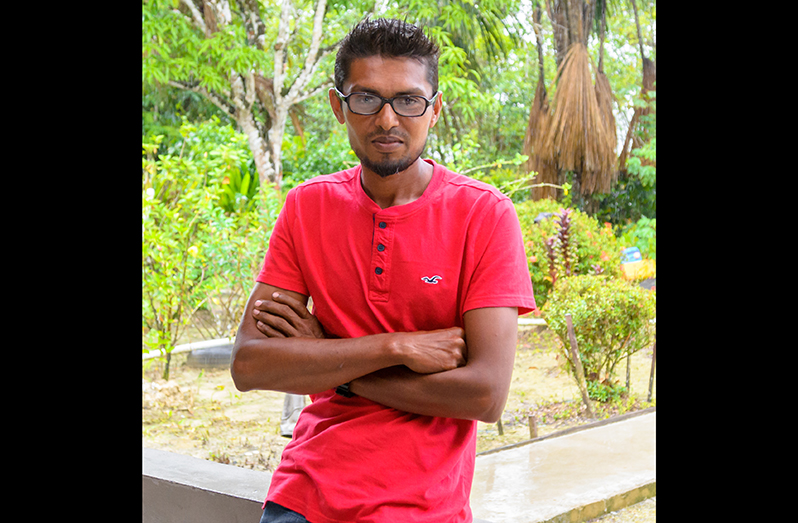
His produce is transported via boat to Parika and Bartica for sale.
Iftekar explained that the surging prices for chemicals, fertilisers and other farming supplies were worrying and the prices for mixed gas have also increased.
Fortunately, he resides a stone’s throw away from the Primary School, so his children would walk to school.
“We would go to Parika every two weeks to stock up on essentials and we eat what we grow, but at times we have to buy fruits and vegetables like everybody else. We cannot eat one thing all the time,” he said.




.png)


